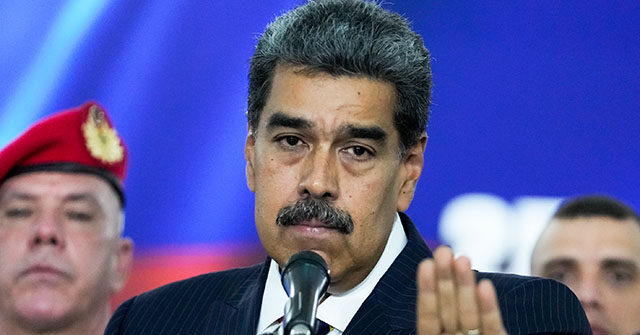On Thursday, Venezuelan Interior Minister Diosdado Cabello announced the arrest of four American citizens, accusing them of “hacking” Venezuelan infrastructure and conspiring to overthrow President Nicolás Maduro. The individuals were identified as Gregory David Weber, David Gutenberg Guillaume, Jonathan Pagan González, and Jorge Marcelo Vargas. Cabello described them as part of a larger “mercenary group” allegedly associated with the CIA and Spain’s National Intelligence Centre (CNI). Notably, Cabello himself has a questionable reputation; he is wanted by the U.S. on multiple narcotics-related charges, with a $10 million bounty for information leading to his capture.
Cabello leveled serious accusations against the detainees without presenting any concrete evidence. He claimed that Weber was a hacker intent on sabotaging Venezuelan state infrastructure, while Guillaume, described as a paramedic, was purportedly tasked with offering medical assistance during supposed terrorist operations. Pagan González was accused of plotting attacks against Maduro and other key officials, and Vargas, a dual American-Bolivian national, was reportedly caught taking photographs of oil refineries in Venezuela. Maduro echoed these claims, asserting that the so-called mercenary group also consisted of other foreign operatives, including Colombians and a Lebanese national, intending to disrupt the Bolivarian revolution.
During the press conference, Cabello showcased 71 firearms, allegedly sourced from the U.S., that he claimed had been seized in various operations. He also alleged that 33 rifles had been stolen from Venezuela’s armed forces, purportedly for use in overthrowing the government. According to Cabello, investigations suggested that these alleged mercenaries were transported into Venezuela by the Spanish intelligence agency, CNI, asserting that the U.S. was also intricately involved in conspiratorial plans against Maduro through both the CIA and the DEA. He connected these detainees to criminal organizations within Venezuela, although he asserted these groups had already been dismantled by authorities.
This announcement follows a similar declaration made a month earlier, in which Cabello revealed the detention of three other U.S. citizens for plotting against the Maduro regime, attributing their actions to CIA and CNI involvement. He claimed both sets of detainees were undergoing prosecution in adherence to Venezuelan law, emphasizing that their human rights were being respected. Cabello asserted that no mistreatment occurred, contrasting his government’s treatment with the well-known conditions at Guantanamo Bay, and claiming that legal proceedings were correctly lined up per the law.
To protect the integrity of the judicial process in Venezuela, Cabello refrained from disclosing the names of judges and prosecutors handling these cases. He expressed gratitude toward the Colombian government, led by leftist President Gustavo Petro, for its assistance in dismantling the alleged conspiracy against Venezuela. Cabello stated that Colombian agencies had aided in identifying logistics operators attempting to smuggle arms into the country, stressing the interconnectedness of regional stability and security.
In closing, Cabello warned that the purported plots against Venezuela are likely not isolated incidents but could reflect a broader strategy targeting other nations not aligned with U.S. interests. Christian K. Caruzo, a Venezuelan writer, documented these developments in the context of his perspective on life under socialism in Venezuela, underscoring the complexities of a country fraught with geopolitical tensions, allegations of international conspiracies, and a government standing firm against perceived external threats.

